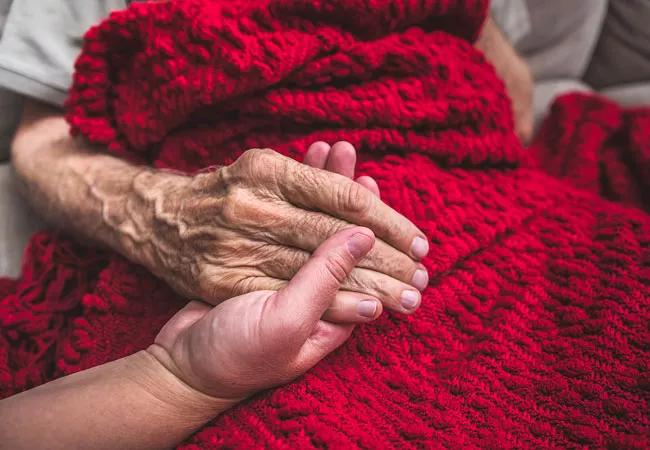A Q&A with Laura Shoemaker, DO

Dr. Shoemaker: First, I wish physicians appreciated how much patients want their doctors to start the conversation. Doing so does not dash hope or create anxiety. Instead, initiating the conversation demonstrates sincere interest and respect. It can lead to better outcomes and lessen family stress near the end of life.
Advertisement
Cleveland Clinic is a non-profit academic medical center. Advertising on our site helps support our mission. We do not endorse non-Cleveland Clinic products or services. Policy
Second, “the conversation” is the essential piece of advance care planning. Completing documents without the associated meaningful conversations with loved ones falls short of the goal. The Conversation Project website is a fantastic help! My family used it and I refer my patients there regularly after I’ve initiated the conversation in my clinic.
Dr. Shoemaker: Most healthcare professionals do understand that there is a difference and want to guide patients appropriately, but because they don’t totally get the difference, I hear things like “this patient is not ready for palliative care” or “this patient is ‘going palliative’ instead of hospice.”
Palliative care is appropriate for any patient suffering with serious illness, regardless of age or stage. The goal is to improve quality of life for both the patient and the family. Palliative care is provided by a specially trained team of doctors, nurses and other specialists who work together with a patient’s other doctors to provide an extra layer of support. It can be provided along with curative treatment.
If you ask most patients and families if they would like additional support from a doctor or nurse who specializes in improving their quality of life while they live with the physical, emotional and spiritual burdens of serious illness, most will say yes. Hospice, which falls under the umbrella of palliative care, is conservative, comfort-focused care for patients with a life-limiting disease and a prognosis of months or less.
Advertisement
Dr. Shoemaker: I talk with patients and families every day about their care goals and preferences, but when it comes to family, I sometimes find myself tongue-tied. Last fall Ellen Goodman came to Cleveland to discuss the The Conversation Project. I went with my parents and this gave us the stimulus and tools we needed to turn abstract conversations into concrete ones. We had our best conversation in the car on the way home. We then included my brother in the conversations during Thanksgiving, and now the advance directive paperwork is done too.
Dr. Shoemaker: Because it is a place where I feel confident bringing my own family for care. It feels good to work among colleagues practicing at the top of their fields. Cleveland Clinic is an extremely collegial place, where staff go out of their way to help patients and co-workers.
Dr. Shoemaker: I love competitive sports. I play tennis and softball, as well as I can at this age, and enjoy almost any spectator sport, including college football (Go Blue!), professional football, basketball and baseball. I’m pretty loyal to Cleveland teams.
Dr. Shoemaker: Spend a little more time in the moment.
Advertisement
Advertisement

The shifting role of cell therapy and steroids in the relapsed/refractory setting

Radiation therapy helped shrink hand nodules and improve functionality

Standard of care is linked to better outcomes, but disease recurrence and other risk factors often drive alternative approaches

Phase 1 study demonstrates immune response in three quarters of patients with triple-negative breast cancer

Multidisciplinary teams bring pathological and clinical expertise

Genetic variants exist irrespective of family history or other contributing factors

Study shows significantly reduced risk of mortality and disease complications in patients receiving GLP-1 agonists

Structured interventions enhance sleep, safety and caregiver resiliency in high-acuity units